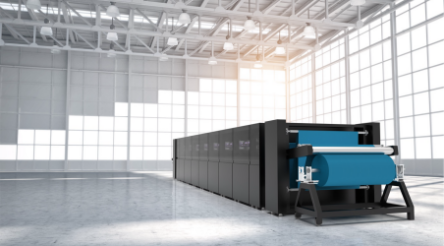FBICRC backs $18M Perth battery cathode precursor pilot plant

The Future Battery Industries Cooperative Research Centre (FBICRC) has today announced it has signed contracts with a consortium of 19 leading local, national and international companies, the WA Government, contractors and academic institutions to design and commission a Cathode Precursor Production Pilot Plant in Western Australia.
The pilot plant project is an important step in providing technical capability towards the production of advanced battery materials on an industrial scale in WA.
The FBICRC and its partners will invest $9.2 million in cash and $9.2 million in-kind including the repurposing of BHP’s existing nickel sulphate pilot plant to produce the present generation of cathode chemistries used in electric vehicles from locally sourced materials.
FBICRC CEO Stedman Ellis said Australia exports the commodities including lithium, nickel, manganese and cobalt used in the form of mineral concentrates with little value added from the manufacturing of lithium-ion battery materials retained in Australia.
Stedman said: “The construction and commissioning of refining plants at Kwinana and Kemerton is changing this picture, putting WA on the cusp of being able to meet the supply chain requirements for local manufacture of the nickel-rich NCM (nickel cobalt manganese) used in the booming global electric vehicle market.”
Project participants are Alpha HPA Limited, Ardea Resources Limited, BASF Australia Ltd, BHP Nickel West Pty Ltd, Blackstone Minerals Limited, Calix Limited, ChemX Materials Ltd, Cobalt Blue Holdings Limited, CSIRO, Curtin University, EV Metals Group PLC, Galaxy Resources Limited, HEC Group Pty Ltd, IGO Limited, JordProxa Pty Ltd, Lycopodium Limited, Minerals Research Institute of Western Australia, Queensland University of Technology and University of Technology Sydney.
Installation and commissioning of the Cathode Precursor Production Pilot Plant is due to take place in Q1, 2022, which will be followed by an 18-month pilot campaign period.
Curtin University Deputy Vice-Chancellor, Research, Chris Moran said: “This facility is instrumental to the creation of an Australian battery materials industry, with the capability to continuously produce a broad range of battery cathode chemistries utilising Australia’s nickel, lithium, cobalt, manganese and aluminium resources for qualification, and will serve as the design -basis for industrial scale operation.”
The pilot plant will extend the work of several Australian research institutions and companies which can currently produce battery materials in pilot sized batches.
The pilot plant will produce precursors suitable for material qualification in EV value chains and build on the downstream opportunities created by the battery grade chemical refineries being commissioned or constructed in WA.
It will have state-of-the-art automation and controls to enable 24/7 remote operation.
The modular nature of the pilot plant allows:
- Simultaneous independent operating conditions for the four reactors
- Four reactors to operate under identical conditions for increased throughput
- And continuous and batch reactor conditions to simulate industrial precursor plants in Asia and Europe.
The plant will initially be commissioned with smaller reactors to facilitate fast throughput in numerous operating conditions before switching to larger reactors for scaled up throughput at optimal processing conditions.
Picture: FBICRC
Subscribe to our free @AuManufacturing newsletter here.
Topics Technology
@aumanufacturing Sections
Analysis and Commentary Awards casino reviews Defence Gambling Manufacturing News Online Casino Podcast Technology Videos





